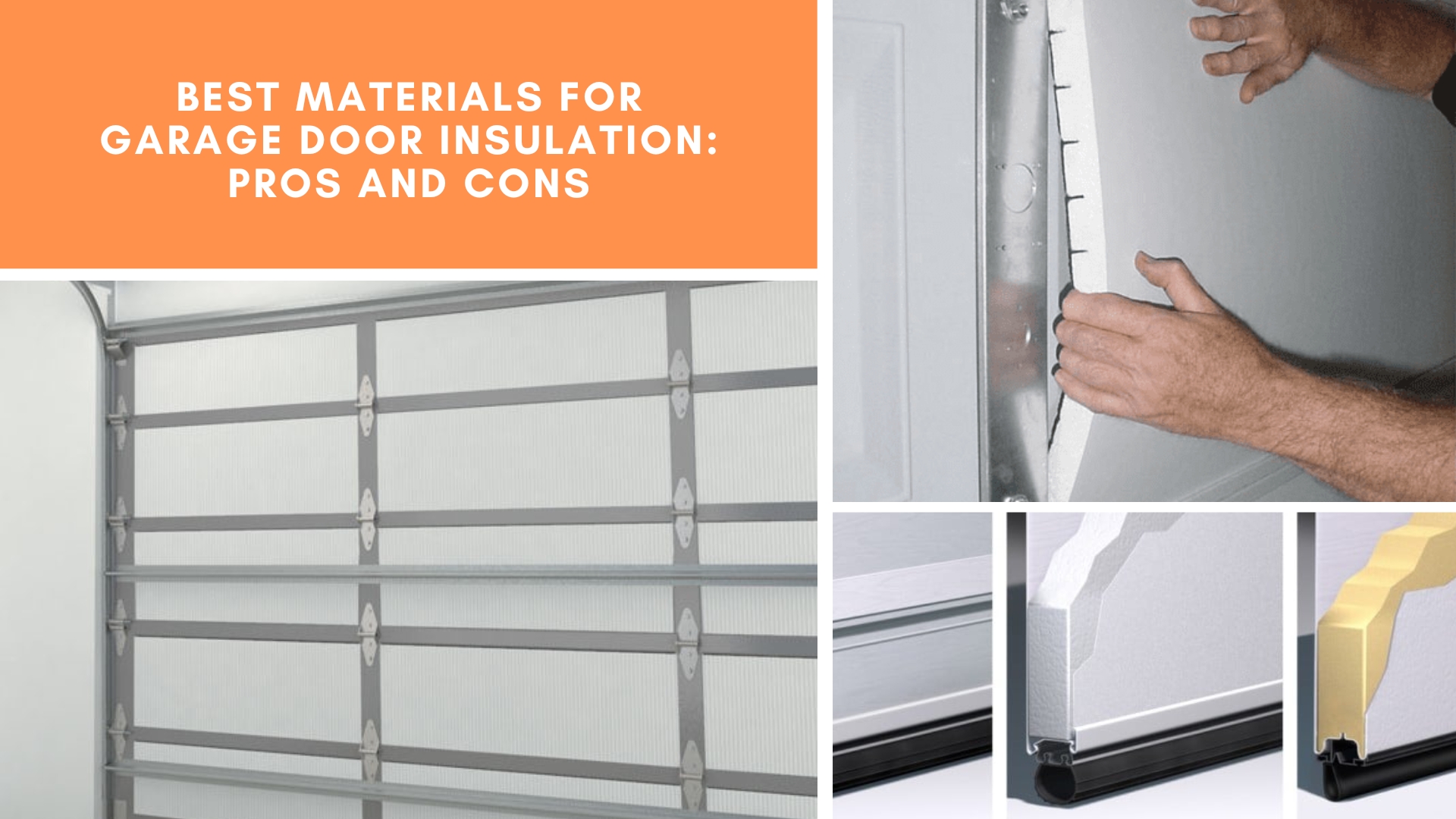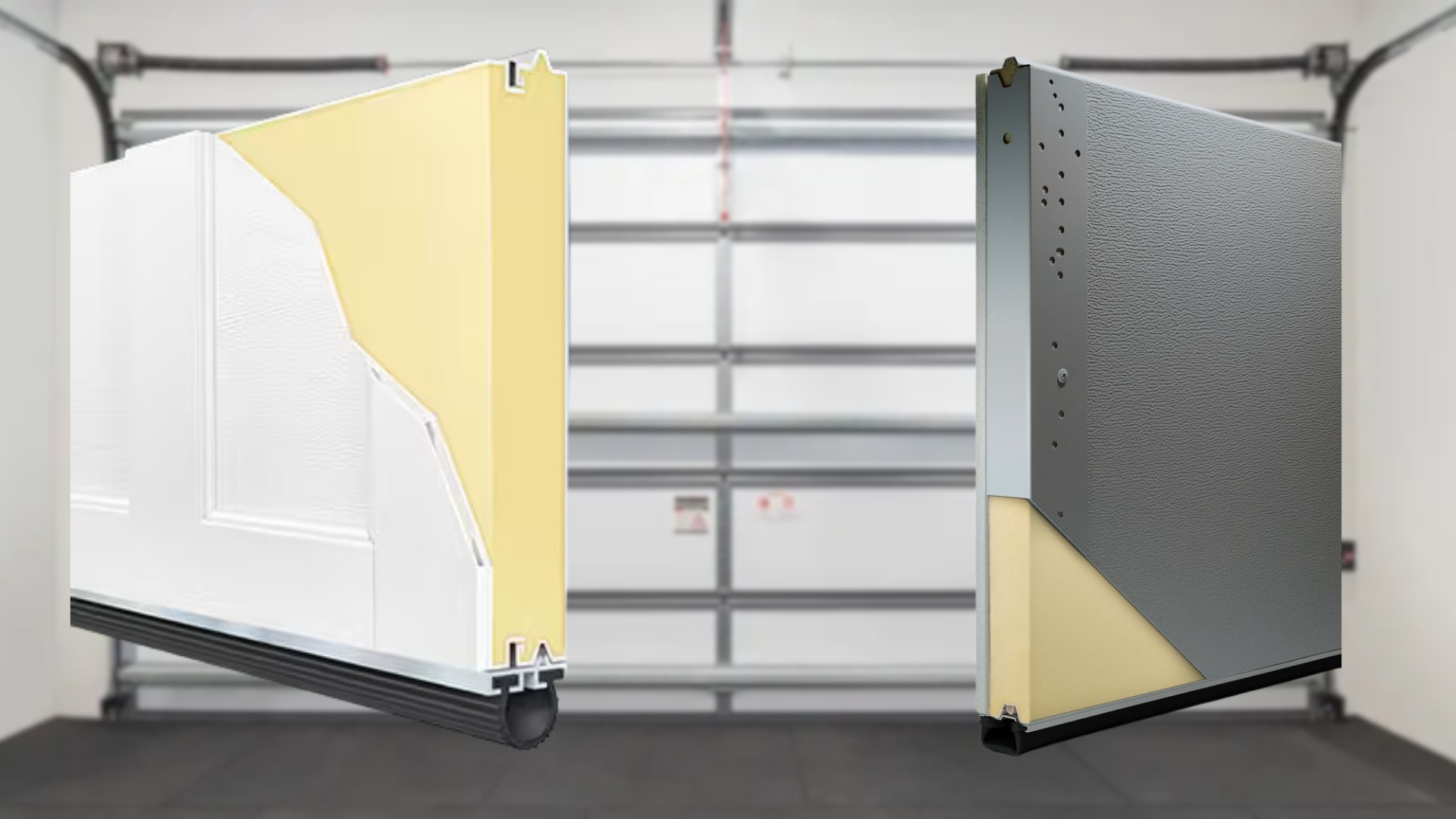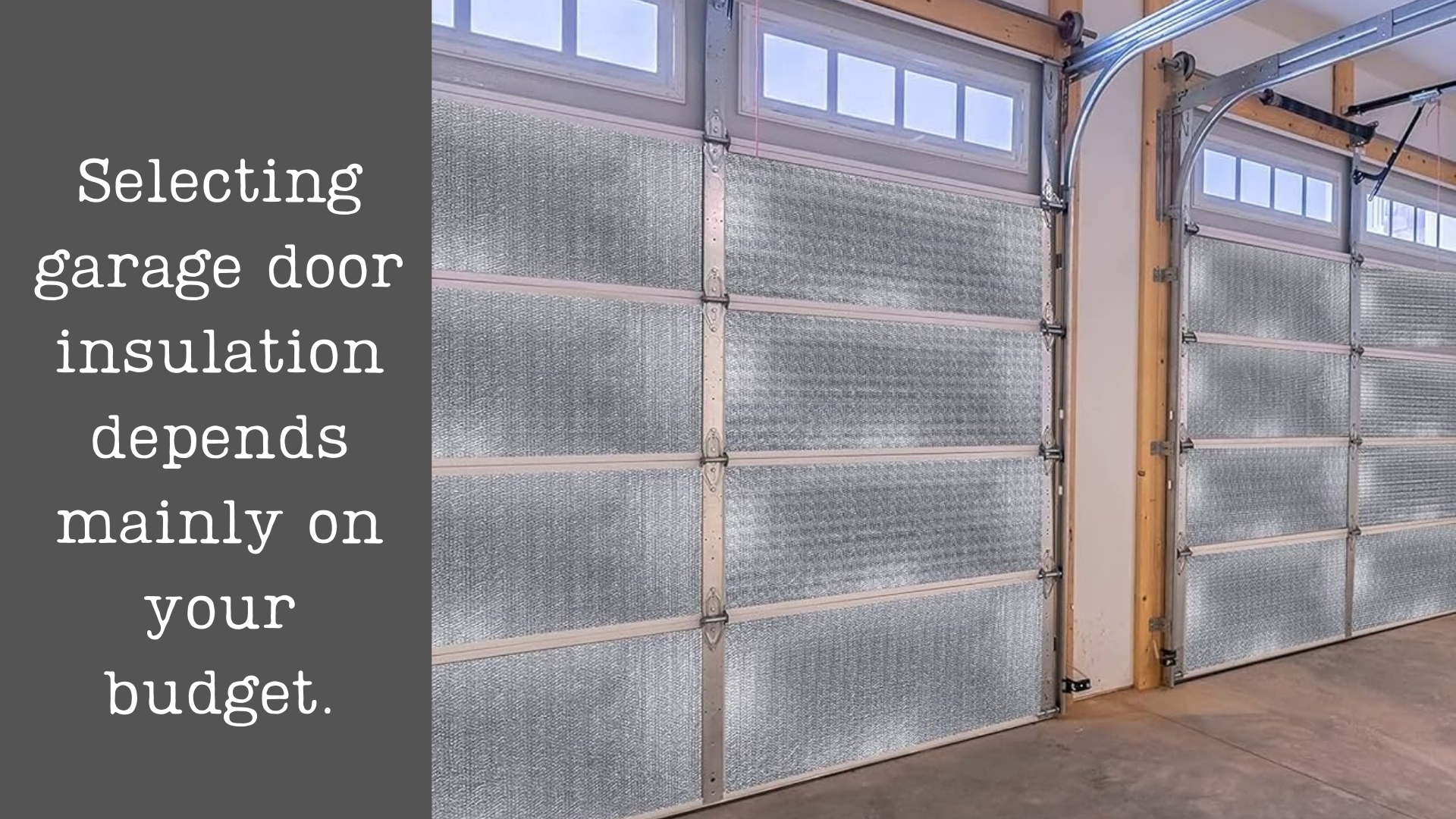
Do you want to keep your garage cozy during Lincoln’s chilly winters and cool in the hot summers? Then garage door insulation might be just what you need. Yet, with so many materials to choose from, finding the right one can be tricky. In this guide by Titan Garage Doors Lincoln NE, we will explore the best materials for insulating your garage door. Make the best decision by learning about the pros and cons of each option. Let us get started and transform your garage into a space that is cozy all year round.
Why Insulate Your Garage Door?
Did you know that insulating your garage door offers multiple benefits? Now let us talk about why it is important:
Energy Efficiency
First, garage door insulation helps you save on energy bills. In Lincoln, where winters can get quite cold and summers can be scorching, a well-insulated garage door keeps the temperature stable. As a result, your heating and cooling systems do not have to work as hard, which can lower your energy bills.
Comfort
At the same time, an insulated garage door makes your garage a more comfortable space. Whether you use your garage as a workshop, a gym, or just for storage, insulation helps maintain a pleasant temperature.
Protection
In addition, insulating your garage door protects your car and belongings from extreme temperatures. In fact, cold can affect your car battery and fluids, while heat can cause items in storage to deteriorate. With garage door insulation, you keep your valuables in better condition.
Noise Reduction
Also, garage door insulation reduces noise. So, if your garage is near the busy West A Street in Lincoln or you have noisy neighbors, insulation helps keep your space quieter. Note that it works both ways, too. So, if you are working on a loud project in your garage, you will not disturb your family and neighbors as much.
Types of Insulation Materials
With our experts’ help, here are the most popular materials you can use for garage door insulation, each with its pros and cons:
Polystyrene (Foam Board)
Polystyrene, or foam board, is a popular insulation material for garage doors. It comes in rigid panels that are easy to handle and install.

Pros:
- Polystyrene offers excellent thermal resistance.
- It is also lightweight, making it easy to cut and fit into your garage door panels.
- Plus, this material is cost-effective, giving you good insulation without breaking the bank.
Cons:
- Polystyrene can be tricky to cut precisely, which might make the installation process a bit frustrating.
- It might not fit perfectly into every nook and cranny because it is not very flexible.
Polyurethane (Spray Foam)
Polyurethane is another great option for garage door insulation. Spraying this material on the door makes it expand to fill in gaps, creating a tight seal.
Pros:
- Polyurethane provides the highest R-value, making it one of the best insulators available.
- This material also adds structural strength to your garage door, making it more durable.
Cons:
- Polyurethane insulation is more expensive than other options.
- It often requires professional installation, which can add to the cost.
Reflective Insulation (Radiant Barrier)
Reflective insulation, which is often made of aluminum foil and other reflective materials, is an effective way to reduce heat transfer and improve energy efficiency. It works by reflecting heat away from your garage.
Pros:
- Given the hot weather in Lincoln, reflective insulation is a great way to keep your garage cool.
- It is lightweight and easy to install, thus making it the practical option for DIY enthusiasts.
- At the same time, this type of insulation can help lower cooling costs during summer.
Cons:
- In colder places, reflective insulation does not work as well, so it might not be the best choice for the winters in Lincoln.
- It has a lower R-value compared to foam options.
Fiberglass Insulation
Meanwhile, fiberglass insulation is a common and affordable choice for insulating garage doors. It usually comes in rolls or batts that you can cut to size.
Pros:
- Fiberglass offers good thermal resistance, keeping your garage comfortable year-round.
- On top of that, it is relatively affordable, making it a budget-friendly option.
- Plus, you can easily cut and fit fiberglass insulation to your garage door.
Cons:
- Handling fiberglass can irritate your skin and lungs, so you need to take safety precautions during installation.
- It requires careful sealing to prevent moisture buildup, which could lead to mold and mildew.
Choosing the Right Insulation Material
Now that you know the different materials available for garage door insulation, it is time to consider which one is the best fit for your needs. Here are some important factors to keep in mind:
Lincoln’s Climate
For a fact, Lincoln experiences hot summers and cold winters. For this reason, your garage door insulation needs to handle both extremes. Think about insulation materials with a high R-value, which measures thermal resistance. Remember, the higher the R-value, the better the insulation.
Garage Usage
How often do you use your garage, and for what purposes? Do you use it as a workshop or a gym? In this case, you will want better insulation to keep it comfortable year-round. Meanwhile, if you only park your car in the garage, you might not need as much insulation. Still, basic insulation can protect your vehicle and belongings from temperature swings.
Budget

For certain, choosing garage door insulation is largely based on your budget. So, are you willing to invest more to achieve better performance? Note that some materials, like polyurethane, offer excellent insulation but cost more. Others, like fiberglass, are more affordable but might not insulate as well. In the end, you need to balance your budget with the benefits you want from your insulation.
Garage Door Insulation Installation
Do you have the time and skills to install the insulation yourself? Or should you hire a garage door professional? Some materials, like reflective insulation, are easy for DIY projects. Others, like spray foam, might need professional installation for the best results. Think about your skills and the time you can commit to the project.
Additional Tips for Insulating Your Garage Door
These professional insulation tips will help your garage use less energy:
Seal Your Garage Door the Right Way
Make sure to seal all the gaps and cracks around your garage door. Even the best insulation would not work well if gaps are letting in cold air. Check the edges of the door and the areas around the windows. Use weatherstripping or caulk to seal these areas tightly.
Stick to a Regular Garage Door Maintenance Schedule
Keep your garage door insulation in good condition with routine maintenance. Over time, insulation can wear out or get damaged. So, inspect your insulation every few months. Look for signs of wear and tear, such as sagging or moisture buildup.
Combine Different Garage Door Insulation Materials
Good to know that you do not have to stick with just one type of insulation. Sometimes, using a combination of materials gives you the best results. For example, you might use reflective foil insulation along with polystyrene foam. This combo can provide excellent thermal protection and add strength to your garage door.
Garage Door Service Near Me
Is your garage too hot in the summer and freezing in the winter? It is time to make a change! At Titan Garage Doors Lincoln NE, we offer top-notch garage door insulation that will keep your space comfortable all year round. Plus, our flexible preferred payment options make it easy to insulate your garage door without exceeding one’s budget. So do not wait. Contact us today for a free consultation and start enjoying the benefits of garage door insulation now!

